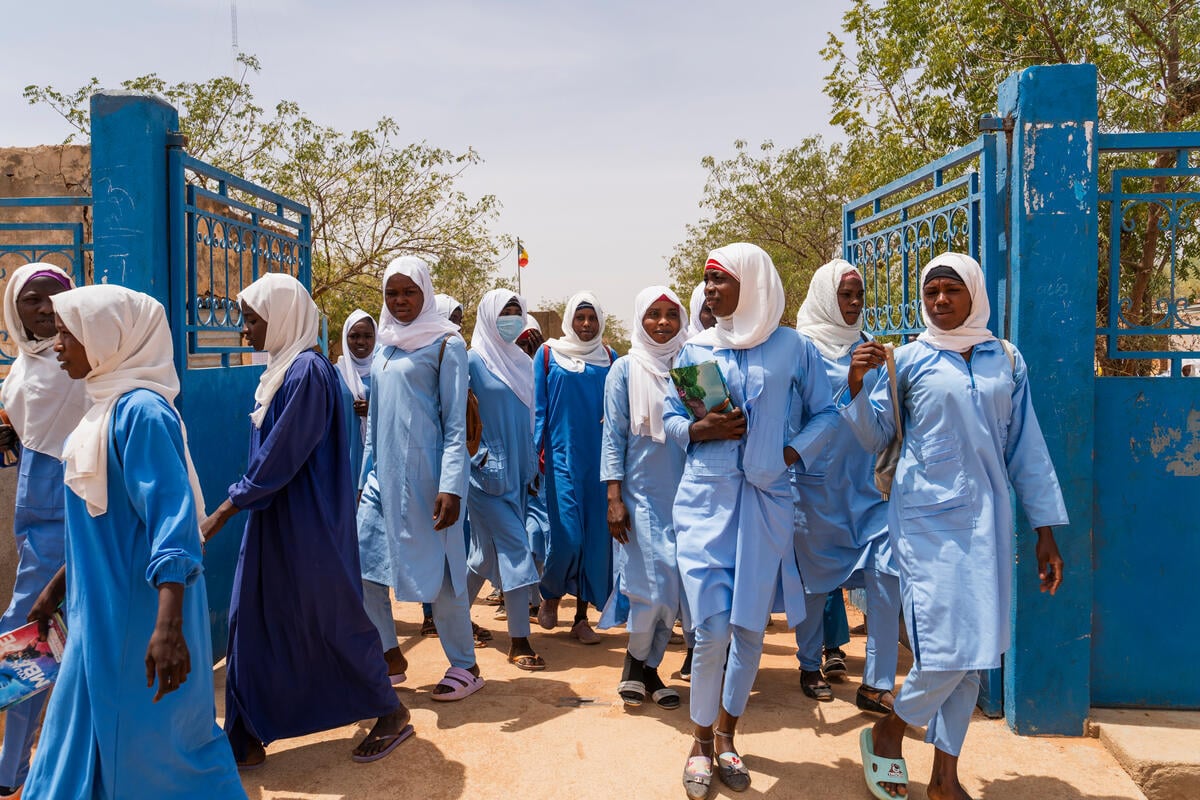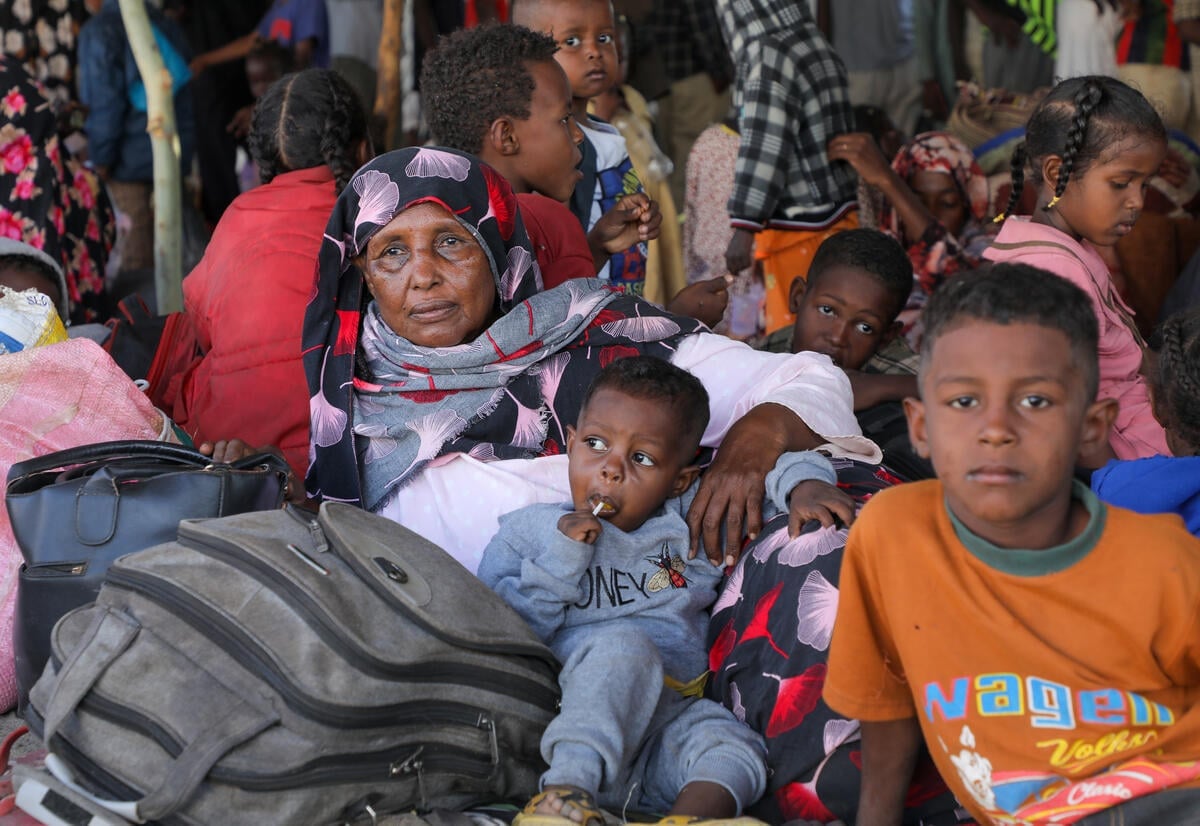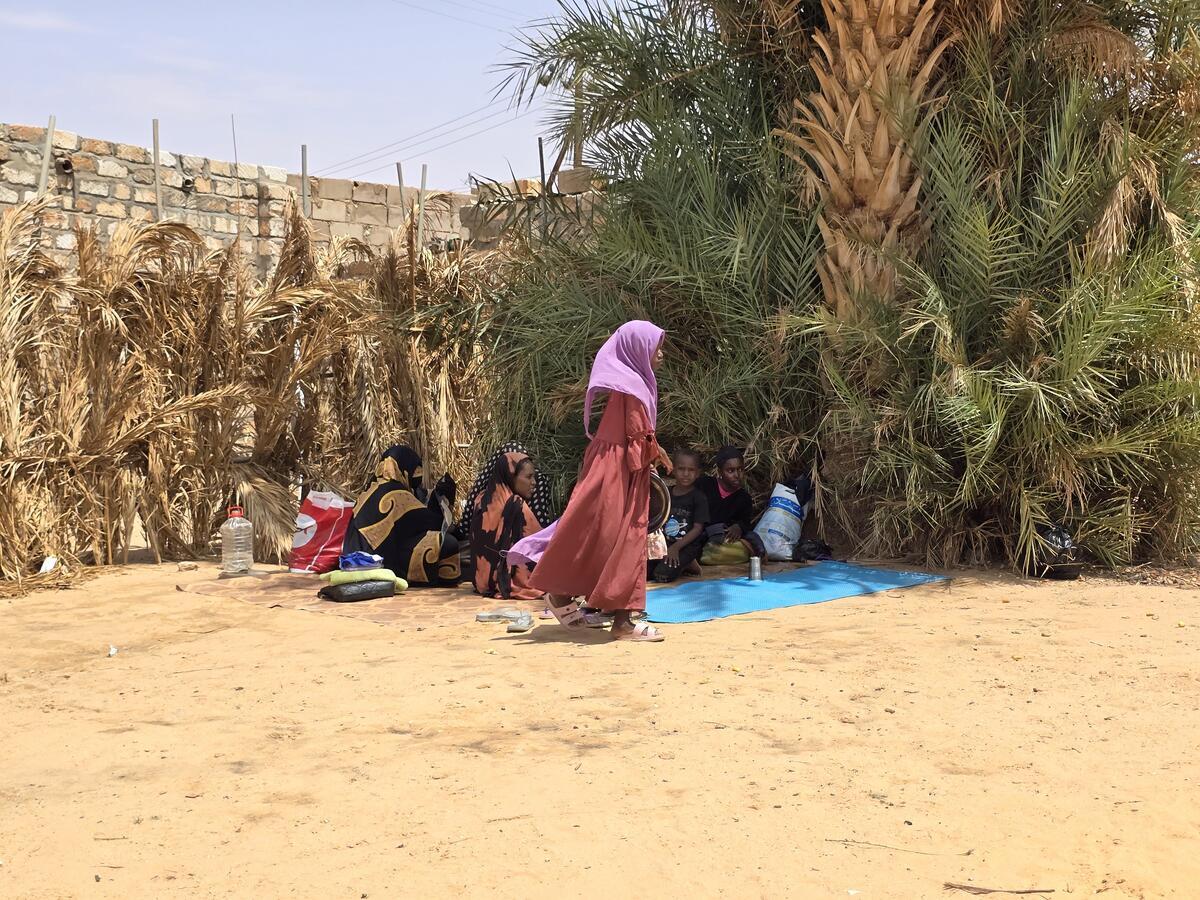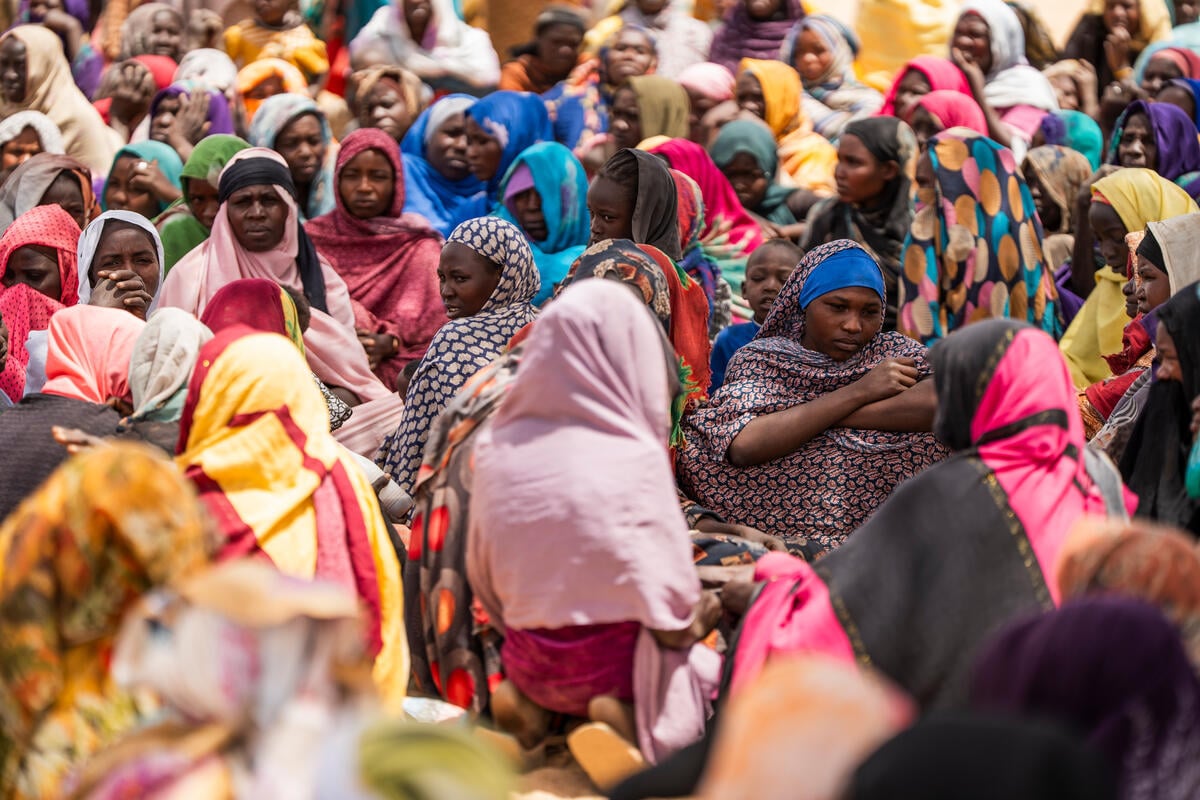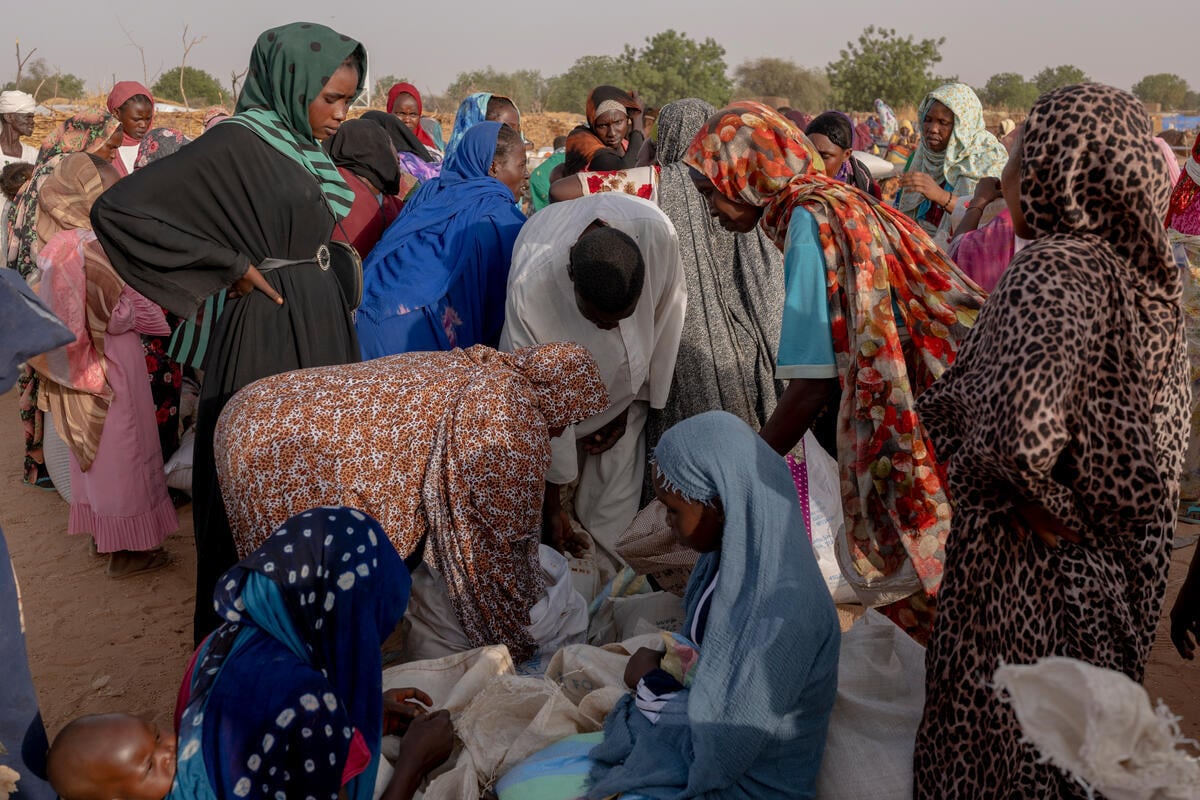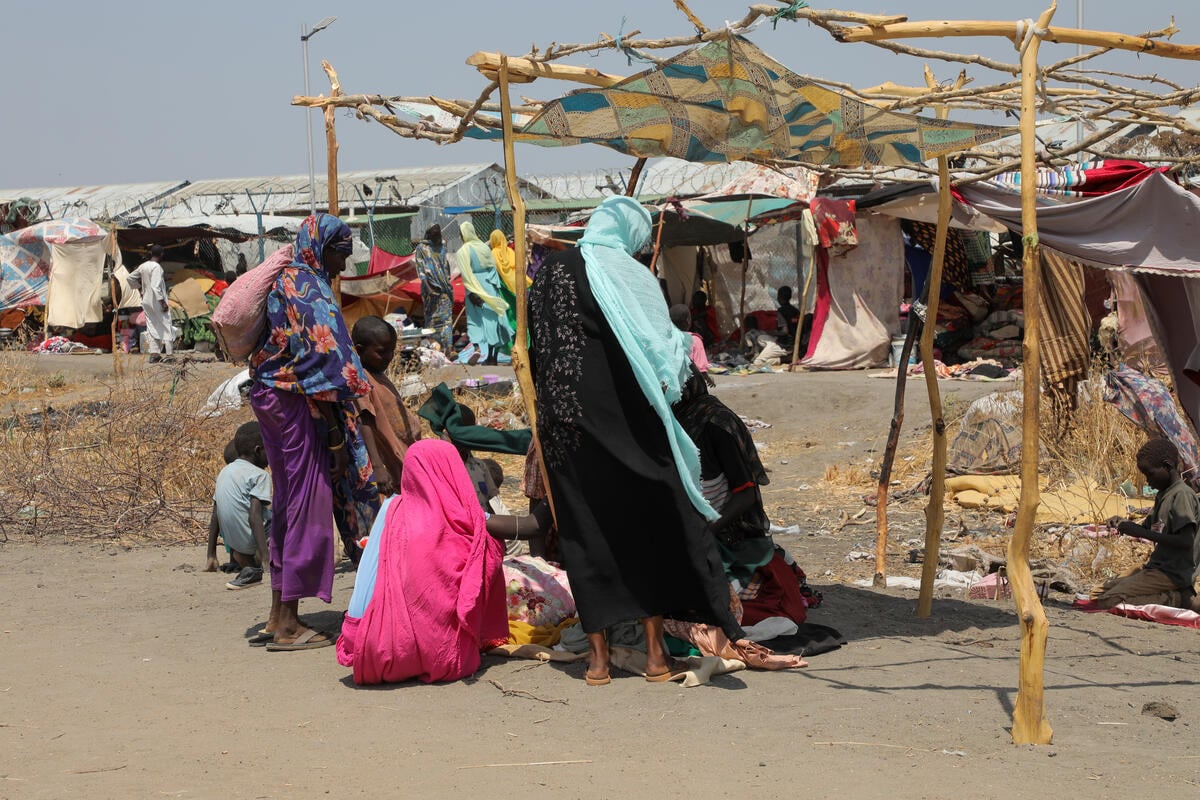More Sudanese refugees flee to neighbouring Chad
More Sudanese refugees flee to neighbouring Chad

NDJAMENA, Chad, Sept 12 (UNHCR) - Hundreds of Sudanese refugees are still streaming into neighbouring Chad to escape aerial attacks in Sudan's Darfur region. The continuing influx has pushed the number of Sudanese who have recently fled to Chad to nearly 70,000.
A UN inter-agency mission which travelled to eastern Chad on Thursday witnessed the arrival of more than 800 new refugees into areas close to the border town of Agan, some 180 kms from the town of Abéché. It was the second UN assessment mission to the area in nearly two weeks. An emergency team from UNHCR's headquarters in Geneva is also set to fly to Chad on Saturday (Sept. 13) to provide emergency assistance to the desperate refugees.
The newly-arriving refugees on Thursday told the team consisting of staff of UNICEF, WFP, MSF-Belgium, UNHCR and government officials that they fled when government forces bombed their villages on Wednesday.
"The general situation of the refugees is very bad," said Tane Bamba, UNHCR Emergency Co-ordinator in Ndjamena. "It is the rainy season, but the refugees have no shelter," Bamba said, adding that the lack of safe drinking water had forced refugees to drink from stagnant pools of rain water. There were cases of respiratory tract illnesses, malaria and diarrhoea among the refugees, he said. The region is prone to high desert temperatures during the day and chilly weather at night.
Bamba said many of the new arrivals were women and children. Many of their men, they said, had been killed in fighting or had stayed behind to fight.
Over the past few years, conflict in the Darfur region of western Sudan has pitted nomadic groups against sedentary agricultural people such as the Fur, Zaghawa and Masalit. Early this year, the Sudan Liberation Army - the military wing of the Sudan Liberation Movement (SLM) - took up arms to protest the perceived lack of government protection of the farming communities in Darfur. The government responded militarily. Refugees say the conflict has heightened ethnic tensions between Sudanese of Arab origin and those of African origin in western Sudan.
Refugees fleeing the conflict are scattered across nearly 20 sites along Chad's eastern border with Sudan. But, according to Bamba, access to these areas remains very difficult.
"The distance from Abéché to the town of Adré, which is near Agan, is 171 kms. But it took us five hours to get there by road," he explained.
The team, which flew from the Chadian capital, Ndjamena, aboard a French aircraft, landed in Abéché.
Local officials told the inter-agency mission that they had not been able to visit an estimated 5,000 refugees believed to be in the town of Tissi, further to the south. A combination of poor road conditions, particularly during the rainy season, and insecurity in this part of Chad make the area difficult to reach.
UNHCR has asked local authorities to regroup the refugees into at least four sites to improve access to them. In the meantime, the refugee agency is readying emergency supplies for up to 40,000 refugees to be sent to Chad from its regional stockpile in Ngara, Tanzania.


